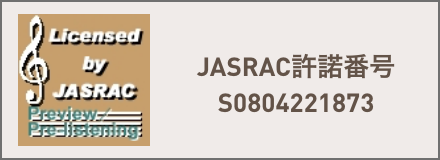アルマリブレ 大草原パンパの民へ:阿部勇一 [吹奏楽大編成]
・1配送につき税込11,000円以上のご注文で国内送料無料
・コンビニ後払い、クレジットカード、銀行振込利用可
・[在庫あり]は営業日正午までのご注文で即日出荷
・International Shipping
ネクサス音楽出版/NWO-017
- 作曲: 阿部勇一
- 演奏時間:0:07:00
- Grade:4
- 編成:吹奏楽大編成/36人~
- 販売譜
- 概要
- 詳細
- 補足
- ENGLISH
アルマリブレ 大草原パンパの民へ
南米アルゼンチン中部に「パンパ」と呼ばれる大草原が広がっています。17 19世紀、そのパンパに暮らした民がいました。彼らは「ガウチョ」と呼ばれる、開拓時代のスペイン人を起源とする先住民との混血住民です。広大な草原で牛や馬を追い独自の文化風習を確立しましたが、世界中の多くの先住民と同様、政治利用されたり、迫害されたり、やがて近代化とともに社会階層としては姿を消してしまいます。今でも「ガウチョの言葉」といえばいわゆる「武士の一言」を意味するというほど、寛大で他人の為の自己犠牲を省みない情に厚い人々だったと伝えられています。この曲は、時代に翻弄されつつも正義を失わず懸命に生きたであろうガウチョの魂と彼らが暮らしたパンパの風景をテーマに作曲したものです。
1994年吹奏楽コンクール課題曲として応募し入選はしたものの惜しくも選ばれず、長い年月眠っておりました。今回、私のとあるプロフィールの中からこの曲を見つけて頂き、再演して下さった「東広島ウィンドアンサンブル」の方々には大変感謝申し上げます。この再演のために23年ぶりに曲名も含め改訂した若き日の作品です。
The vast prairies of Southern Argentina are known as the “Pampas”. During the 17th-19th centuries, Spanish immigrants came to live there and mixed with the indigenous people. These pioneers were known as “gauc hos”. These people lived a life on horseback, following the cattle herds across the plains, and creating a unique culture that blended the customs of the two races into a new way of life. Eventually, as the modern world encroached on
them, they were absorbed into the larger population but many of their traditions and values remain. The “word of the Gaucho” has similar meaning to the Japanese term “word of the Samurai” and modern day Argentinians see the gaucho as a kind, generous and self-sacrificing people. Alma Libre is inspired by this belief and is the composer’s attempt to depict the “word of the Gaucho” in music.
This piece was composed in 1993 and was nominated for the 4th Asahi Composition Prize but was lost to the public until recently, when the East-Hiroshima Wind Ensemble chose to resurrect it after it not be performed f or more than 20 years. It represents Abe’s composition style e arly in his career and its return is a welcome addition to the wind band repertoire.
仕様
楽器編成
- Piccolo
- Flute 1
- Flute 2
- Oboe
- Bassoon
- Eb Clarinet
- Bb Clarinet 1 (div.)
- Bb Clarinet 2 (div.)
- Bb Clarinet 3
- Alto Clarinet
- Bass Clarinet
- Alto Saxophone 1
- Alto Saxophone 2
- Tenor Saxophone
- Baritone Saxophone
- Trumpet 1
- Trumpet 2
- Trumpet 3
- Horn 1
- Horn 2
- Horn 3
- Horn 4
- Trombone 1
- Trombone 2
- Trombone 3 (Bass Trombone)
- Euphonium
- Tuba (div.)
- String Bass
- Timpani
- Percussion 1 (Tambourine, S.D., Bongo Drums, Wind Chimes, Suspended Cymbal)
- Percussion 2 (Suspended Cymbal, Cymbals, Tambourine, S.D., B.D., Tam-tam)
- Percussion 3 (Bongo Drums, B.D., Suspended Cymbal, Cymbals, Tam-tam)
- Percussion 4 (Xylophone, Glockenspiel)
- サイズ
- レターケースサイズ
ALMA LIBRE ~ FOR PAMPAS PEOPLE OF PRAIRIE
Specifications
We cannot accept orders for international shipping from this site. Please contact us before ordering.
- ARTIST
- Composer: Yuichi ABE
- INSTRUMENTATION
- Windband / More than 45 Players
- PRODUCT TYPE
- Set / SELL
- DURATION
- 0:07:00
- GRADE
- 4
- PUBLISHER / Code
- Nexuss Music Publishing Inc. / NWO-017
- RELEASE
- OVERSEAS SHIPMENT
- No
- EUROPEAN PARTS

![アルマリブレ 大草原パンパの民へ:阿部勇一 [吹奏楽大編成]](/html/upload/save_image/Nexuss.png)


